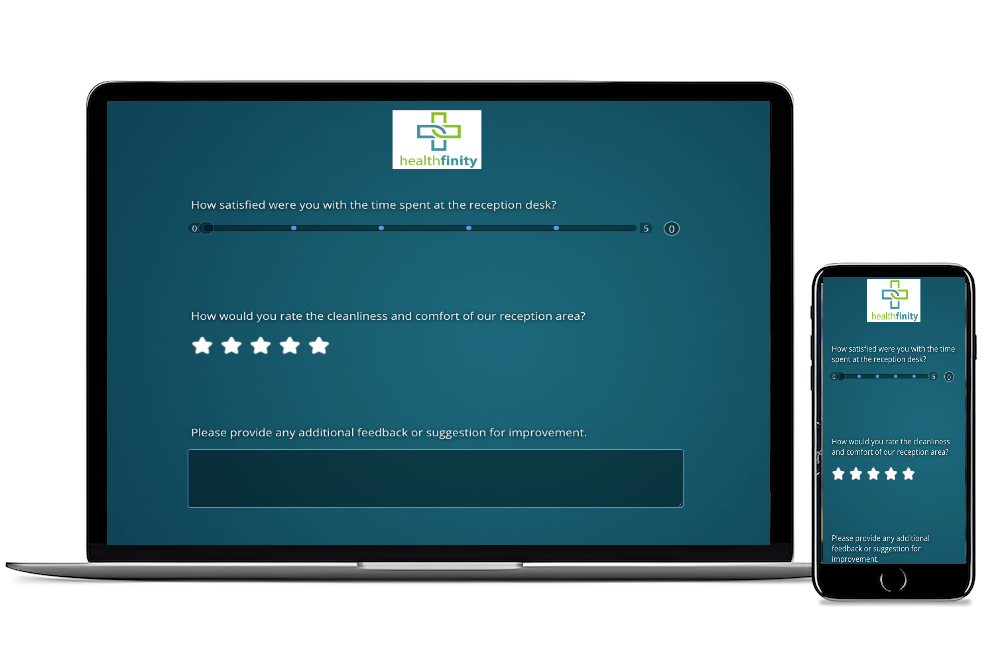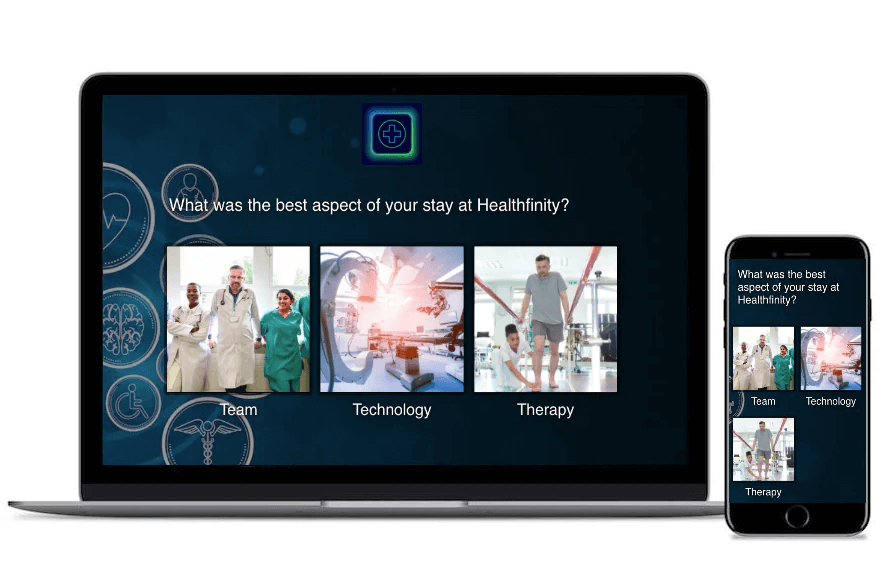Mental health surveys are powerful tools for understanding well-being, identifying issues, and guiding treatment or program development. This article explores how mental health surveys are used across research, healthcare, workplaces, schools, and advocacy organizations to assess needs, monitor trends, and evaluate programs. It highlights their role in improving public health, supporting mental wellness, and shaping evidence-based interventions. Readers also gain insight into key survey benefits, ethical considerations, and sample questions across demographics, psychological well-being, and social support. With the right approach, mental health surveys can help “end the stigma” and promote better mental health awareness and care.
“End the stigma” has become a call to action for advocates of mental health understanding, education, research, and treatment. The World Health Organization reports that mental health conditions are increasing worldwide, and today, 1 in 5 adults lives with a mental illness. So what does mental illness look like? How can mental health be improved? What is causing mental health issues? Mental health surveys aim to find answers to these questions.
Create your FREE mental health survey now!
What is a Mental Health Survey?
A mental health survey is a tool used to better understand the well-being of specific individuals or entire populations.
Mental health surveys often take the form of questionnaires and scales developed by scientists to measure psychological constructs. At a personal level, mental health surveys gather information about someone’s mental well-being, symptoms, and experiences related to mental health. These surveys usually include a series of questions designed to assess different aspects of mental health, such as mood, anxiety, stress levels, coping skills, and overall psychological well-being.
Questionnaires are designed to capture both factual information and perceptions, including attitudes toward mental health. On a broader scale, mental health surveys may be used to collect information on mental health trends within a population. Scientists and researchers use a range of measures and tests to assess mental health outcomes in populations. The results can be used for research purposes, to identify areas of concern, inform mental health policies, and guide the development of interventions and treatments.
While a mental health assessment survey can provide valuable insights, it should not be a substitute for a professional evaluation or diagnosis from a qualified mental health practitioner.
Create your FREE mental health survey now!
7 Ways Mental Health Surveys Are Used
Mental health surveys play an important role in understanding the needs of people and populations. The process of assessing mental health typically involves using a range of validated measures and surveys to evaluate psychological, emotional, and behavioral constructs. The intended outcome of these surveys is to inform interventions and improve mental health services. Some key areas in which these surveys can be beneficial include the following.
1. Assessment
Mental health surveys are used as assessment tools for assessing individuals for potential mental health conditions. These surveys may include standardized tests and measures to help identify symptoms, assess severity, and guide diagnostic processes (though surveys are not diagnostic tools in and of themselves). A mental health assessment aids in early detection, which helps ensure timely intervention and treatment.
2. Epidemiological Studies
Epidemiology is the branch of medical science that investigates all the factors that determine the presence or absence of diseases. Epidemiological studies often rely on validated questionnaires and psychometric scales as measures of mental health. In that regard, mental health surveys are helpful when conducting large-scale studies that estimate the prevalence of mental health disorders in specific populations. The total number of questions in these surveys can impact data quality and respondent engagement. They provide essential data to assess the burden of mental illness on a community, city, or country, while identifying risk factors and developing targeted prevention strategies.
3. Treatment Planning
Surveys are helpful when it comes to developing personalized treatment plans, as clinicians use survey results to tailor interventions for patients, including adult patients and clients. By understanding the specific symptoms, challenges, and needs of individuals, healthcare providers can identify strengths and areas where patients may be experiencing symptoms, allowing them to recommend programs or medication that effectively address their unique circumstances.
Create your FREE mental health survey now!
4. Program Development
Creating effective mental health programs relies on evidence-based practices to ensure they address real needs and achieve meaningful outcomes. The results of a mental health survey can help with the development of mental health programs and initiatives. The success of these programs can be evaluated using survey data to measure changes in behavior, perceptions, and overall impact. These programs can be implemented in schools, community centers, workplaces, healthcare settings, and other environments.
5. Program Evaluation
After a program or policy has been created and implemented, it’s important to evaluate its effectiveness, with program evaluation focusing on the outcome of interventions. By gathering feedback and measuring outcomes, surveys help determine the impact of these initiatives and identify areas for improvement. Comparison of pre- and post-program survey results, along with scoring information, helps determine effectiveness and provides insight into how well the program achieved its intended goals.
6. Monitoring and Trends
As noted earlier, mental health conditions are increasing worldwide. Of course, trends can change over time, and researchers will want to monitor mental health levels over time. By repeating surveys periodically, researchers can observe changes in prevalence rates, identify emerging issues, and assess the impact of interventions and public health campaigns. Repeated surveys can also capture changes in mental health at different moments in time, providing more accurate and timely insights. A range of measures is used to monitor trends across populations, allowing for a comprehensive assessment of mental health, well-being, and related factors.
7. Research and Collaboration
Lastly, mental health surveys conducted by various groups can contribute to greater research efforts and/or lead to collaborative efforts with external organizations or researchers. Scientists in psychology have developed best practices for collaborative research using mental health surveys, ensuring that data collection and interpretation are grounded in evidence-based approaches. By sharing survey data, researchers can help one another and cultivate a broader understanding of mental health issues as they relate to the population.
Create your FREE mental health survey now!
Who Uses Mental Health Surveys?
Now, let’s take a look at the types of individuals and organizations that use and benefit from mental health surveys. Mental health surveys are administered to a wide range of populations, including clients, children, and adult patients, to assess their experiences, needs, and outcomes.
Researchers and Academics
Scientists in psychology have developed a variety of mental health survey instruments, making mental health surveys essential tools for conducting research studies, generating data, and advancing knowledge in the field of mental health. Often, researchers and academics work together to create a more effective study and to garner more accurate results and responses.
Healthcare Professionals
Clinicians, psychologists, psychiatrists, and therapists use mental health surveys to assess patient experiences, including those of adult patients, track treatment progress, and inform clinical decision-making. Mental health assessments for the elderly are also common in the healthcare profession.
Create your FREE mental health survey now!
Pharmaceutical Companies
Research and development departments within pharmaceutical companies may use surveys to evaluate existing medications and identify the need for new medications. They can also use these surveys to determine whether there is interest in new pharmaceuticals from the public and those in the medical field. This can help with marketing, pricing, and more.
Public Health Organizations
National and international health organizations employ surveys to gather data for policy development, resource allocation, and program planning. Some common types of mental health programs include prevention, intervention, counseling and therapy, peer support, resilience-building, awareness campaigns, employee or student assistance, and substance abuse and addiction programs.
Military
A mental health assessment for military members has been common since the First World War to ensure they can handle the psychological stress of combat. They are designed to identify troops who are already experiencing medical and psychological illnesses before deployment and to identify soldiers who may have the potential to break down in battle or develop psychological problems.
Create your FREE mental health survey now!
Employers
A mental health assessment for jobs is becoming more common as a requirement for employment. These pre-employment tests are designed to weed out candidates who may not be able to handle aspects of the job based on their mental health. Additionally, more companies and workplaces have begun to use mental health surveys for employees to assess employee well-being, identify workplace stressors, and implement appropriate support systems following employment. These are often conducted in accordance with a healthcare provider to improve employee well-being and morale.
Schools
Schools may use a mental health survey for students as a tool to assess and monitor the well-being of their students. These surveys aim to gather information about students’ emotional state and any challenges they may be facing. Often, the results of a mental health survey for students are discussed with a member of staff, such as a student counselor, with the students’ parents, with the best interests of the child in mind.
Nonprofit Organizations and Advocacy Groups
Mental health surveys are employed by nonprofits and advocacy organizations to gather evidence, raise awareness, and advocate for policy changes and improved mental health services. Survey results often provide the basis for the changes they advocate for and present to policymakers.
Create your FREE mental health survey now!
Benefits of Mental Health Surveys
We’ve covered how individuals and organizations use mental health surveys and why, but aside from uncovering information that can help “end the stigma,” there are a number of other benefits. Surveys offer:
- A systematic and standardized way of collecting data on mental health issues provides consistency and comparability across different populations and settings.
- The ability to systematically collect data on behaviors, attitudes, beliefs, perceptions, and opinions related to mental health enables a deeper understanding of psychological well-being and personal growth.
- A way for those suffering from mental health issues to provide honest responses while remaining anonymous, encouraging openness about sensitive topics, and reducing stigma.
- A cost-effective way to collect data compared to other data collection methods, allowing researchers to conduct large studies even when resources are tight.
Mental Health Survey Questions
It’s important to use mental health survey questions that capture relevant information while respecting the respondents’ privacy and sensitivity. Many mental health surveys use Likert scale response options, ranging from ‘strongly disagree’ to ‘strongly agree’, with each answer assigned a specific point value for scoring information. Capturing responses at the moment can improve data accuracy by reducing memory errors. Additionally, be aware that social desirability bias can influence how respondents answer sensitive questions, as they may respond in a way that portrays them more favorably. Be sure to read our blog on how to ask sensitive questions on a survey, and then consider some of these questions when forming your survey.
Create your FREE mental health survey now!
Demographics:
- Age, gender, ethnicity, sexual orientation, income, educational background, and so on. Read more about demographic questions and how to ask them.
- Are there factors related to your background that cause you distress?
- Do you feel you have support from others within your same demographic?
- Do you look outside your social group for help when distressed?
Mental Health Assessment:
- Have you ever had a mental health disorder diagnosis?
- Are you currently experiencing symptoms of mental distress?
- How often have you felt down, depressed, or hopeless in the past month?
- Are you taking any prescribed medications for mental health?
Psychological Well-being:
- How would you rate your overall mental well-being?
- How do you think others would rate your mental well-being?
- How often do you feel stressed or overwhelmed?
- Have you experienced any anxiety or panic attacks recently?
- How strong is your sense of meaning or purpose in life?
- What are your attitudes toward mental health and well-being?
- What beliefs do you hold about your ability to cope with challenges or demonstrate resilience?
- Which specific behaviors do you engage in to support your psychological well-being?
Social Support:
- Do you feel supported by your friends and family?
- How would you rate your communication with friends and family in your daily life?
- Do you ever feel targeted/bullied by others?
- How often do you engage in social activities or hobbies?
- How often do you participate in community or group activities, either online or offline?
- Have you experienced any feelings of loneliness or isolation?
Lifestyle and Habits:
- How often do you engage in physical exercise?
- Do you have a balanced diet and enough sleep?
- How often do you use social media? Do you feel it is helpful or harmful?
- Have you used alcohol or drugs as a coping mechanism?
Treatment and Support:
- Have you sought professional help for your mental health concerns?
- Are you taking any prescribed medications for mental health?
- Are you aware of the mental health resources available to you?
- Do you feel satisfied with the support and treatment you have received?
Remember to ensure the survey is user-friendly with clear instructions and response options. Additionally, it’s important to remember ethical considerations, including informed consent, data protection, and the availability of support resources for participants who may require assistance. Be sure to read our blog on survey ethics for more details.
Conclusion
The World Health Organization and the Centers for Disease Control say that mental health issues are becoming more common, due to many factors such as societal changes, political beefs, social media, continued fear from the pandemic, and other related health issues. To combat these issues and to “end the stigma” to gain understanding and fund programs and treatments, mental health surveys are a necessity for researchers, companies, institutions, and others.
A serious topic like mental health needs a survey platform that takes it seriously. SurveyLegend, used by many in the healthcare industry (see a healthcare provider’s video review on G2), offers the security and confidentiality that a mental health survey needs, and allows for easy, user-friendly questions to make surveys simple for respondents. Start today for free.
Which type of mental health survey user are you? What have been your past experiences with them? Can we make any changes to our surveys to help you? Let us know in the comments!
Create your FREE mental health survey now!
Frequently Asked Questions (FAQs)
What is mental health?
Mental health consists of a person’s emotional, psychological, and social well-being, whether as an individual or part of a group. Mental health affects how people think, feel, and behave, influencing their ability to cope with life’s challenges, establish relationships, and make decisions. It is important at every stage of life, from childhood and adolescence through adulthood.
What is a mental health survey?
Mental health surveys gather information about the mental well-being of a person or a population group. These surveys often use questionnaires and tests to assess aspects such as mood, anxiety, stress levels, coping mechanisms, and overall psychological well-being. For example, a typical survey question might be: “Over the past two weeks, how often have you felt little interest or pleasure in doing things?” Greater population mental health surveys may be used for research purposes, to inform policies, and guide the development of interventions and treatments.
Why should I conduct mental health surveys?
When appropriate, conducting a mental health survey empowers researchers to gain insights, address specific needs, drive awareness, inform decision-making, and ultimately improve the mental well-being of the population they are surveying.



